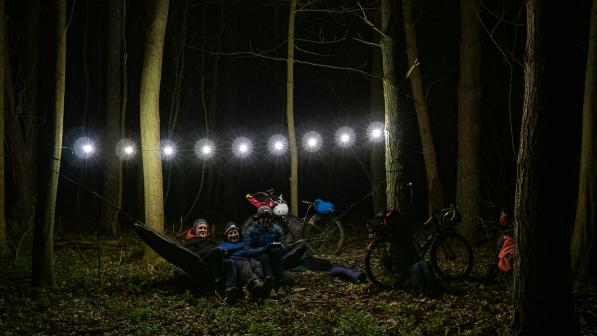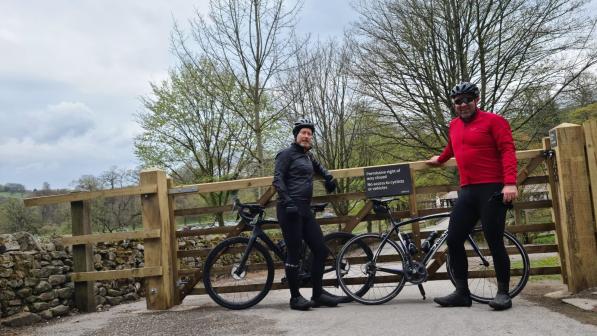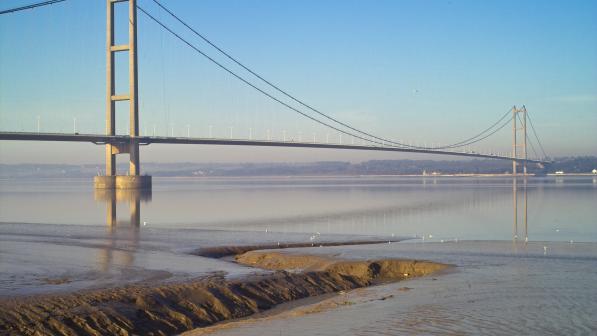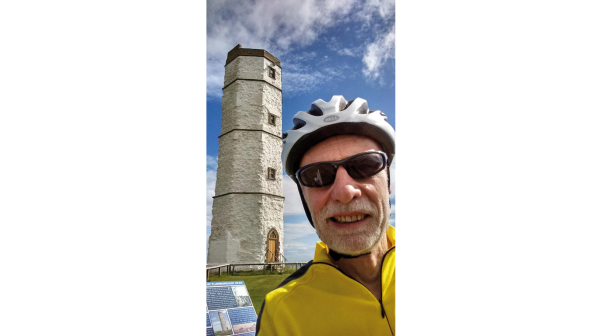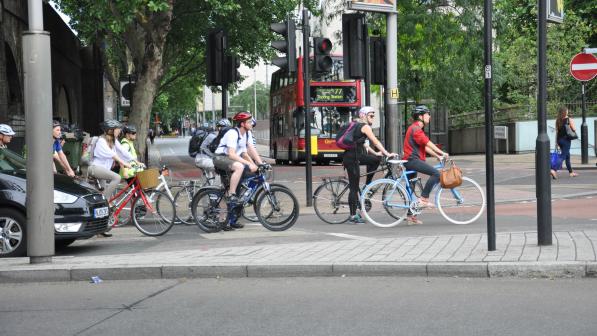The Duke, the bike ban and the taxman

Cycling UK is calling into question the tax exemptions the Duke of Devonshire benefits from, supposedly in return for allowing public access to his estate while banning cyclists from most of the 30,000-acre Bolton Abbey estate.
The Duke of Devonshire has an estimated net worth of £800million and in addition to owning the 30,000-acre Bolton Abbey estate, the family are also custodians of Chatsworth House, which has been closed due to the COVID pandemic but is due to reopen next month.
With the bank holiday weekend approaching, visitors will flock to the grounds of stately homes across the land but those on bikes won't be welcomed at the sprawling estate in the Yorkshire Dales. That's because attempts have been stepped up to prevent cyclists using the Wooden Bridge on the estate leading to a popular cycling café, despite the landowner receiving generous tax relief for supposedly welcoming visitors onto the land
Under terms of the tax relief the Duke of Devonshire receives, the estate must provide access to a series of public roads and permissive footpaths and bridleways crossing the land. This access and its public benefit is being denied to many people, including those wanting to cycle, which Cycling UK says should cause HMRC to investigate the estate’s claims for tax exemption.
Duncan Dollimore, Cycling UK head of campaigns said: “Cycling UK looked into this matter a little closer, we found we were really only scratching the surface and that the Devonshire Estate had been failing to provide access to cyclists to estate land for years.
“This is one of the most beautiful landscapes in Yorkshire and it’s easy to see why the estate attracts some 400,000 visitors a year. Cyclists should be able to enjoy the special qualities of our National Parks, instead they are being faced by security guards more appropriately employed outside of nightclubs.”
Cycling UK has written to Her Majesty’s Revenue and Customs (HMRC) urging them to investigate the Devonshire Estate’s failure to deliver reasonable public access for cyclists and horse riders, predating the recent closure of the bridge on the Bolton Abbey Estate.
Local riders were alarmed by the Estate’s decision in March to close access to the bridge which has been used for decades by cyclists to cross the river from the minor road from Storiths to visit the Cavendish Pavilion tea-room. The gate to the path was not only locked but security guards have been employed to prevent riders from crossing the bridge to have a coffee.
Sharon Mcauley from Ilkley had been a visitor to the estate with her family for many years and felt cyclists were being unfairly singled out: She said: "I have used this route for over 20 years without problems and cannot understand the recent change. I live locally and feel most aggrieved at this loss of a route. We have usually stopped for a coffee at the Cavendish so contribute towards the estate.".
Alistair Preston, a company director from Leeds was also caught out by the change. He explained: "As a result of this closure we missed Bolton Abbey from our recent ride itinerary. Our group of four people did not get a coffee and a cake at the Cavendish Pavilion, and they lost out on £20-£30 from us alone..
"We would not mind walking with the bikes from the gate to the cafe - it’s only 50 yards."
Cyclists should be able to enjoy the special qualities of our National Parks, instead they are being faced by security guards more appropriately employed outside of nightclubs
Duncan Dollimore, Cycling UK head of campaigns
Mr Dollimore said: “The estate includes around 80 miles of open moorland, crossed with paths and bridleways suitable for horse riding and cycling, over which there is already an extensive right of access on foot under the Countryside Right of Way Act.
"We’re not asking for complete unrestricted access to thousands of acres of moorlands - despite the fact that this is exactly what CROW access offers for walkers - but at the moment the Estate is claiming a tax exemption by undertaking to allow additional public access, when in reality the access it’s allowing is largely that which walkers are already legally entitled to anyway, which brings into question the justification for the tax exemption.”
Landowners of heritage property and other assets such as works of art can receive what is known as a conditional exemption from inheritance tax on that property or assets if they make it available and if it is judged to meet criteria, for example, comprising land of outstanding natural beauty and spectacular views.
As part of their own conditionally exempt agreement, the Estate has agreed to provide: “Public access available all year on the public roads and permissive footpaths and bridleways.”
After Cycling UK approached the Estate about its concerns, it received a statement that its policy remained to continue the tradition of “allowing public access wherever possible provided this does not conflict with the conservation objectives and reasonable agricultural, forestry and game management requirements” but no further rationale for the refusal of access to cyclists has been provided.
In the letter to HMRC, Cycling UK asks the Revenue to investigate whether:
- The Estate is in breach of the conditional exemption undertaking by closing the permissive path over Wooden Bridge, a key constituent of the identified permissive route network in their undertaking.
- The Estate has failed, in the wider context, to deliver reasonable access for the public (including both able bodied and disabled cyclists), in accordance with the conditional exemption undertaking.
- It has given sufficient regard to the duty to promote opportunities for the understanding and enjoyment of the special qualities of the National Park by the public - specifically in the lack of access for cyclists and horse riders to both permissive paths and the wider estate, including vehicular moorland access tracks.
- In the development and administration of conditional undertaking agreements at Bolton Abbey Estates, HMRC as a public authority has fully considered and given sufficient regard to, the Public Sector Equality Duty - specifically in the lack of access for disabled cyclists, horse riders and canoeists to both permissive paths and the wider estate, including vehicular moorland access tracks.
A full copy of the letter can be viewed below:
